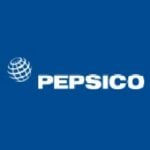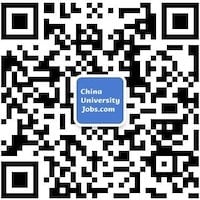
PepsiCo China
About Company
PepsiCo was one of the first multinational companies to enter China, and our products have been in the country for over 40 years. Over the past 10 years, we have invested more than RMB 53 billion in China with our business partners to build a successful food and beverage business in China, while also actively investing in the country’s development process.
PepsiCo’s products are loved by millions of Chinese consumers. Our major brands in Greater China include PepsiCo, Minute Maid, Seven Happiness, Fruit of the Loom, Gatorade, Pure Water, Lox, Quaker Oats, Doritos, Cheetos and Chestnut products.
PepsiCo began its investment in China in 1981 with the establishment of its first bottling plant in Shenzhen, and completed a strategic alliance with Master Kong Holdings in March 2012, creating a leading beverage production network in China with approximately 70 bottling plants and sales channels across the country.
In 1993, PepsiCo’s food business entered China with the introduction of Ritz-Carlton potato chips. Today, PepsiCo’s food business in China has grown to eight food plants. PepsiCo Foods has contributed to the development of agriculture in China and over the past 10 years, more than 10,000 farmers have benefited from PepsiCo’s agricultural programs in China.
In November 2012, PepsiCo opened its new food and beverage innovation and development center, the PepsiCo Asia R&D Center, in Shanghai. The center is PepsiCo’s largest top-tier R&D center outside of North America and a hub for new product, packaging and equipment innovation across its Asian operations.
In August 2018, PepsiCo announced an additional investment of nearly $100 million to expand and renovate its Songjiang food plant in Shanghai, adding new production lines, introducing advanced packaging and warehouse technology, and fully modernizing it. in November 2018, the groundbreaking for the plant’s new investment site was officially opened, making it PepsiCo’s largest potato chip production site in China.
In June 2019, PepsiCo announced a $50 million investment in a new PepsiCo Sichuan production site in the Deyang Economic and Technological Development Zone in Sichuan Province (the “PepsiCo Sichuan Deyang Plant”) to meet growing demand in the central and western regions. The plant is PepsiCo’s first potato chip plant in the southwest region. The investment is part of PepsiCo’s efforts to expand its product line and enhance its capabilities to win the local snack food and beverage market, with a focus on meeting the needs of Chinese consumers. 26 September 2019 saw the official groundbreaking ceremony for PepsiCo’s Sichuan Deyang plant, and 29 July 2021 saw the opening of Phase I of PepsiCo’s Sichuan Deyang plant.
In July 2019, PepsiCo announced an investment of approximately US$131 million to acquire approximately 26% of the outstanding common shares of Wuguo Mill Foods International Holdings Limited and become the second largest shareholder after the founder of Wuguo Mill.
On February 23, 2020, PepsiCo acquired Hangzhou Holmes Food Co.
On October 15, 2020, PepsiCo signed an agreement with the People’s Government of Nanhai District, Foshan City to invest RMB 500 million in the construction of a PepsiCo Guangdong manufacturing site in Danzao Town, and a groundbreaking ceremony was held on December 18, 2020. on December 11, 2021, PepsiCo announced an additional RMB 240 million investment to expand the PepsiCo Guangdong manufacturing site. When the production base is fully completed, the expected production capacity will be 40,000 tons per year.
On May 24, 2021, PepsiCo’s Greater China headquarters was officially established in Shanghai to manage all food factories, subsidiaries and affiliated companies in Greater China and provide investment management decisions, capital management, procurement, sales, logistics, billing, R&D, training and other services to facilitate PepsiCo’s long-term development in China.
The above investment demonstrates PepsiCo’s determination to accelerate its development in China, an important market.
Related Pages
- For more Customer employers, please visit Consumer Companies
- For more employers in Shanghai, please visit Employers in Shanghai
- For more employers in Beijing, please visit Employers in Beijing

